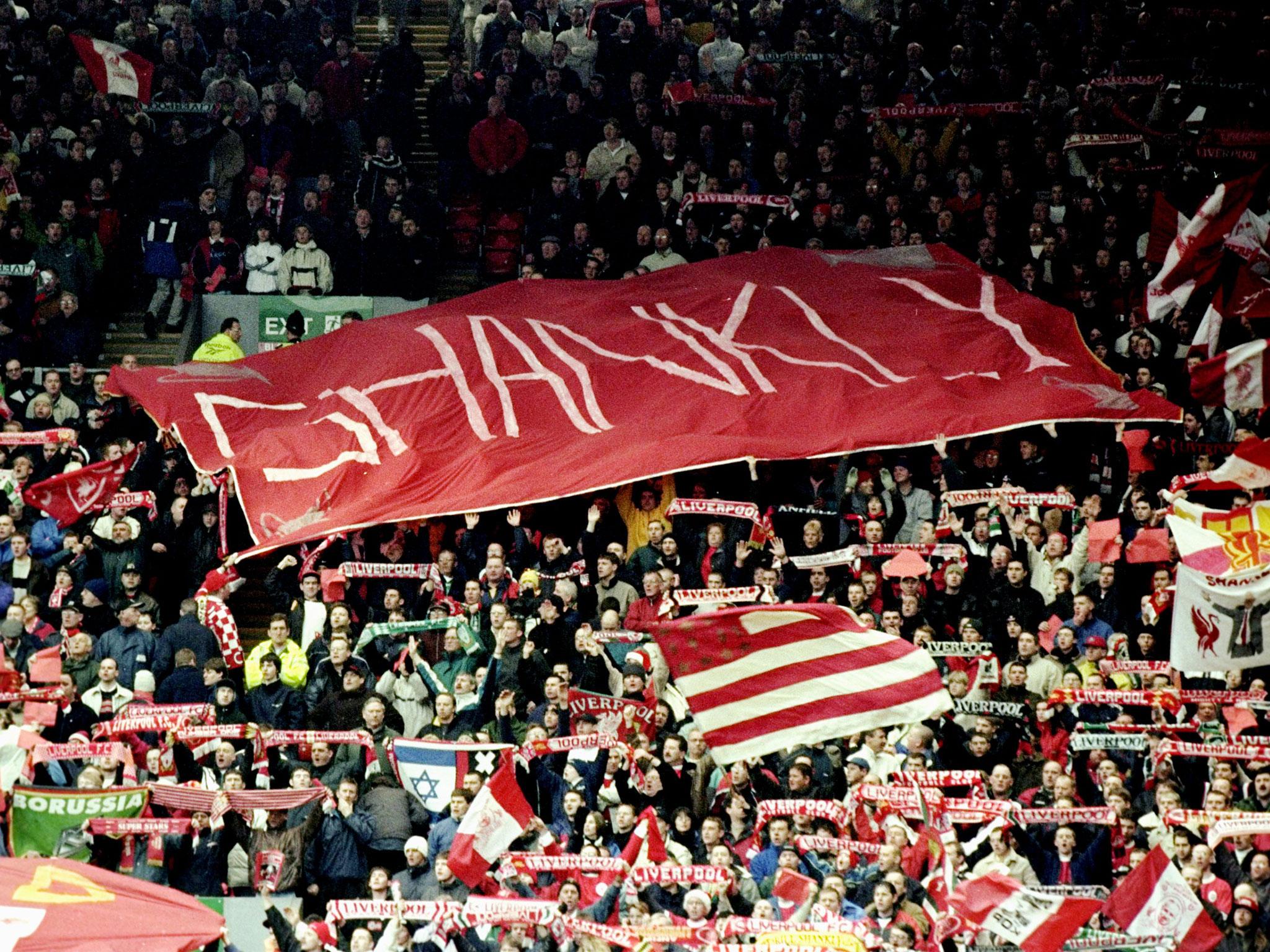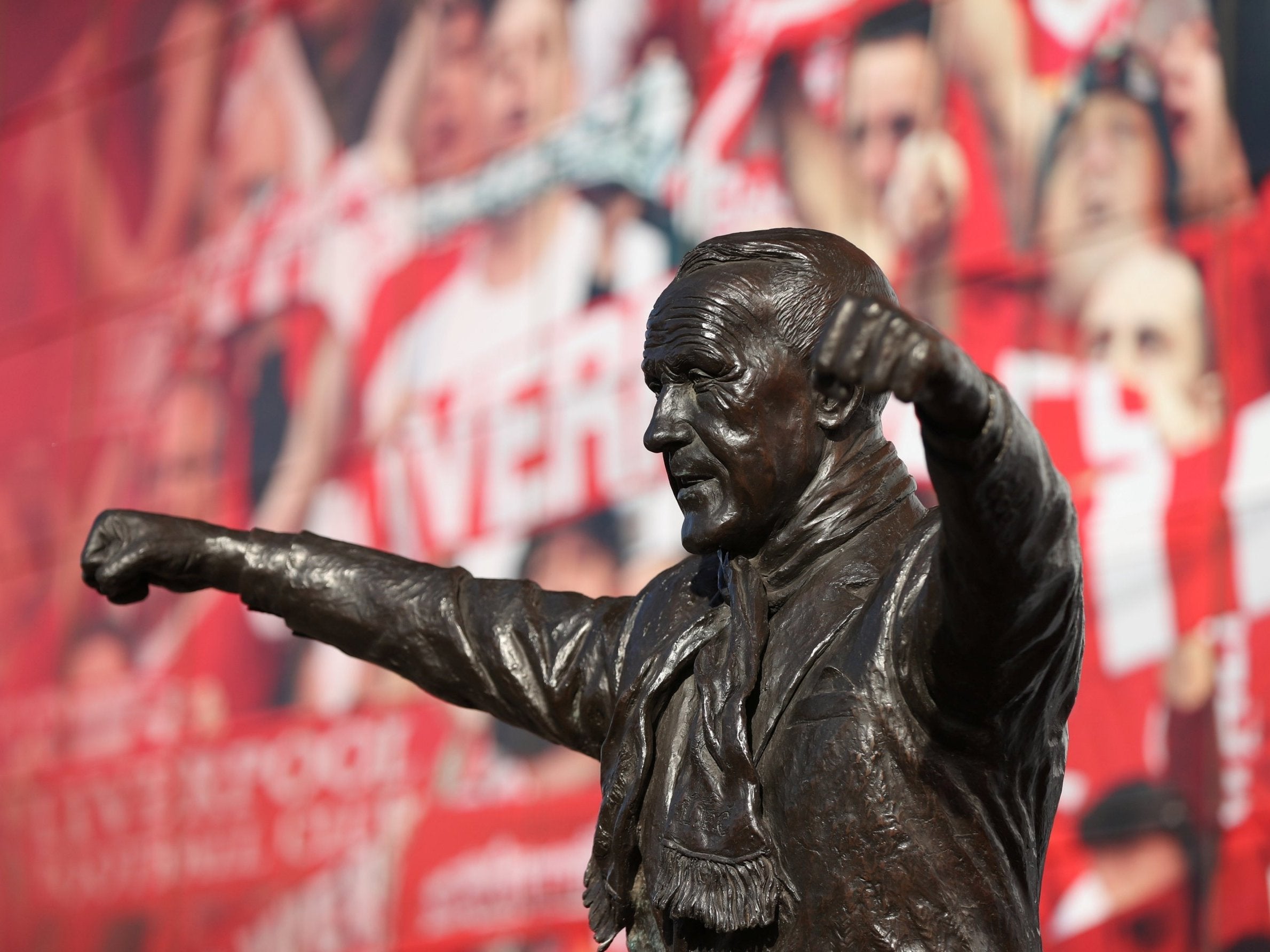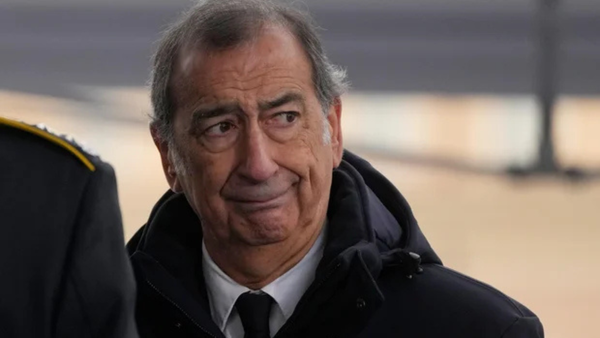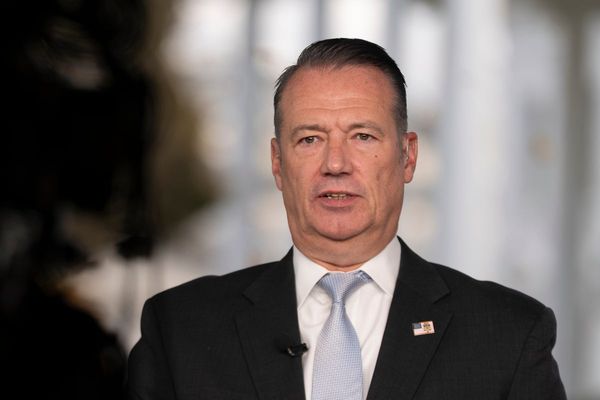
Bill Shankly knew what he was getting into 60 years ago when he took the job as Liverpool manager. The Scot was appointed on 1 December 1959, and understood the challenges in front of him.
TV Williams, the chairman at Anfield, asked whether Shankly would like to manage the best club in the country. The reply was typically straightforward: “Why? Is Matt Busby packing up?”
By the time Shankly packed up 15 years later a Liverpool chairman could have proposed the same question without fear of being contradicted. The club was unrecognisable from the decrepit, rundown place it had been on the eve of the 60s. Shankly found a team mired in the second tier of English football and propelled them to the continent’s top table. He led the side to three titles, delivered their first FA Cup and their first European trophy, the Uefa Cup. Yet the silverware tells only a fraction of the story. The man from Glenbuck’s biggest impact was metaphysical. He created the idea of Liverpool, something that did not exist before his arrival on Merseyside.
That concept still runs through the club. The ‘This Means More’ PR campaign that has drawn derision from rival supporters across the country for its sense of arrogance and exceptionalism can be traced in a linear line to Shankly’s lionisation of the Kop and the way he fed the self-importance of the fans.
This was not an affectation. The process began even before he was given the Liverpool job. In 1953, when he was manager of Grimsby Town, Shankly sent a letter to Geoff Twentyman – who would later become the chief scout that discovered a raft of Anfield superstars including Kevin Keegan and Ian Rush – when the defender signed for Liverpool. “You have gone to probably the finest club in the game,” the missive said, “with the most ardent supporters ever.”
Almost from the start, Shankly made a point of emphasising the importance of fans. He talked about the Kop “sucking the ball into the net”, and made spectators feel like participants in games. He understood how much football clubs meant to working-class communities. As a teenager he had worked as a miner in the pits of Ayrshire and the lessons he learnt stayed with him throughout his life.

Shankly was not the only reason that the Kop became the most famous end in the game. The success of The Beatles put the spotlight on Merseyside in 1964, the year that Liverpool won the league for the first time under his direction. The global interest in the Fab Four’s hometown brought the BBC’s cameras to Anfield to see the ‘new’ phenomenon of supporters singing. Yet Shankly, ever the opportunist, used the circumstances to bolster his proposition that home games were played in “a bastion of invincibility”. Team and terrace combined to terrify opponents and Shankly made sure he implanted the notion in the minds of rival clubs. The tradition continues on European nights in L4, as Manchester City, Barcelona and a host of other sides have witnessed in recent years.
The other lasting legacy of Shankly – and this is more problematic for some – is embodied in his most famous quote. “The socialism I believe in is everyone working for each other, everyone having a share of the rewards,” he said. “It’s the way I see football, the way I see life.”
That statement touched a nerve in a region that was moving leftwards half a century ago. The connection with socialism lingers around the club, much to the chagrin of supporters who do not share those political views. Many in Liverpool’s increasingly global fanbase argue that politics should be divorced from fandom. Shankly would not have countenanced that outlook.
Yet you can see why some ridicule the suggestion. The club is owned by an American investment company and utopian, left-wing ideals do little to improve the bottom line. Earlier this season, Peter Moore, the chief executive, said Liverpool’s success was built on socialist traditions and claimed: “Today when we speak about business questions we ask ourselves: ‘What would Shankly have done? What would Bill have said in this situation?’”
Moore’s comments were met with widespread derision but they reflect the thoughts of a substantial proportion of the fanbase, especially on Merseyside. The chief executive grew up in the city and is as entranced by Shankly’s lingering aura as anyone.
Shankly is the most significant icon in the club’s history and it is impossible to extract his influence from Anfield even in the greed-is-good era of the Premier League. The cynical will say that his image and beliefs are being used for marketing purposes but that is too simplistic an explanation. Shankly’s greatest quality was generating belief in himself, the team and the supporters and that ability has lingered long beyond his death at the age of 69 in 1981.
Like it or not – and over the years there have been plenty in the boardroom who have disliked it as much as Tory fans – Shankly wound socialism so tightly into the fabric of the club that even hardened capitalists have failed to unpick it. The supporters’ union, set up in the late 2000s to fight against George Gillett and Tom Hicks, the former owners, took the name Spirit Of Shankly with good reason.

A statue of the Scot stands outside the Kop with the words ‘he made the people happy’ and at every home game people come to pay homage. Fathers who were not born when Shankly died bring their children to have photographs taken with his image. His name remains one of the most recognisable in British football. There is an almost religious reverence for a man who resigned from the club 45 years ago.
It is not always a positive thing. Shankly’s messianic approach created a mindset where the Kop is sometimes too quick to venerate managers. Recent generations have seemed desperate to find their Shankly, to the point where Brendan Rodgers was feted like the Scot’s reincarnation for a short spell by the desperate and deranged.
Jurgen Klopp has the sort of personality that feeds on and fosters Shanklyesque adulation. The German has used the forces of history in his favour. But whatever the 52-year-old achieves, he will never supersede his predecessor in the pantheon of Liverpool greats. Klopp will always be a minor deity by comparison.
Despite all the changes in football and its culture, Shankly remains the personification of Liverpool. He exists in the present as a driving philosophy around Anfield. His is an almost supernatural presence.
Six decades ago, Shankly knew what he was getting into but had no idea what he was starting. His legacy is one of the most remarkable in football.







